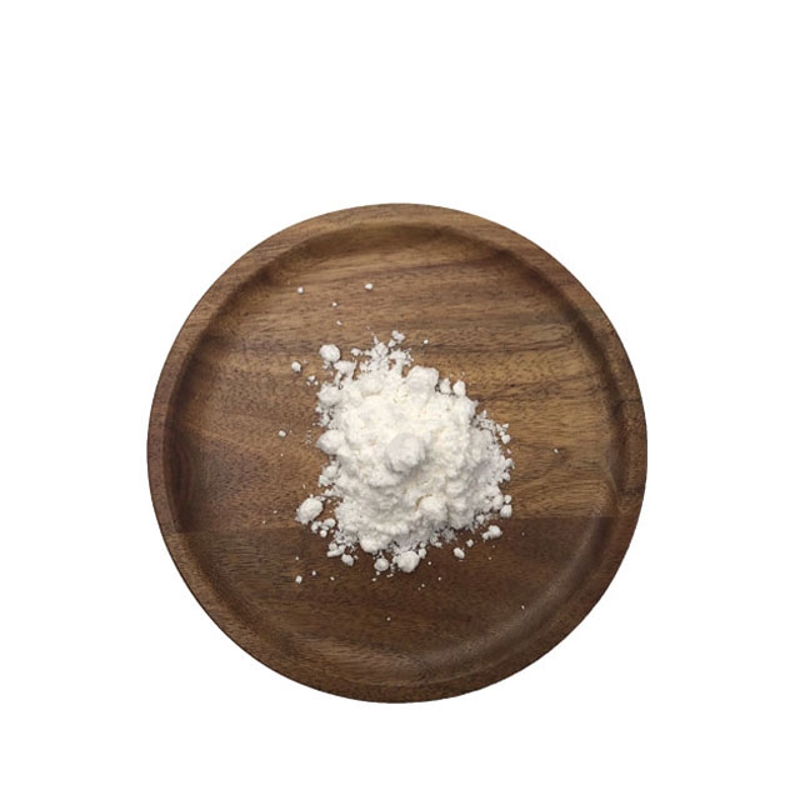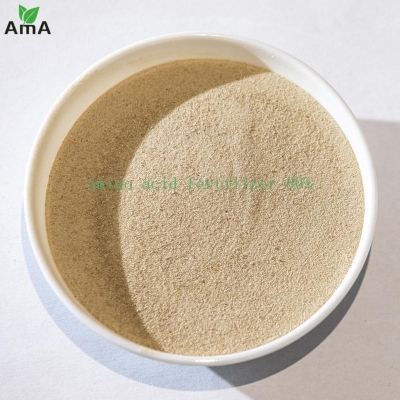-
Categories
-
Pharmaceutical Intermediates
-
Active Pharmaceutical Ingredients
-
Food Additives
- Industrial Coatings
- Agrochemicals
- Dyes and Pigments
- Surfactant
- Flavors and Fragrances
- Chemical Reagents
- Catalyst and Auxiliary
- Natural Products
- Inorganic Chemistry
-
Organic Chemistry
-
Biochemical Engineering
- Analytical Chemistry
- Cosmetic Ingredient
-
Pharmaceutical Intermediates
Promotion
ECHEMI Mall
Wholesale
Weekly Price
Exhibition
News
-
Trade Service
On the afternoon of May 21st, there will be a special session on the modernization of international regulations and supervision of the 2021 DIA Annual Conference.
On the afternoon of May 21st, there will be a special session on the modernization of international regulations and supervision of the 2021 DIA Annual Conference.
The host of the special session is Cao Lili, deputy director of China Food and Drug International Exchange Center.
International Regulatory Modernization Strategy Implementation Plan
International Regulatory Modernization Strategy Implementation Plan
Qiu Qiong, deputy director of the Policy and Regulations Department of the State Drug Administration, first introduced the international regulatory modernization strategy implementation plan to the participants.
On May 10, the State Council government website issued the full text of the "Implementation Opinions on Comprehensively Strengthening Drug Capability Supervision and Construction" (hereinafter referred to as the "Implementation Opinions").
1.
The Chinese government has always attached great importance to drug safety.
From "Circular 44" in 2015 ("Opinions on Reforming the Review and Approval System of Drugs and Medical Devices") to "Circular 42" in 2017 ("Opinions on Deepening the Reform of the Review and Approval System and Encouraging Innovation in Drugs and Medical Devices" "Circular 70" in 2018 ("Opinions on Reforming and Improving the Vaccine Management System") and today's "Circular 16" ("Implementation Opinions") have formed a series of important documents for drug regulatory reform .
Director Qiu Qiong elaborated on the structure and overall requirements of the "Implementation Opinions".
2.
Director Qiu explained the importance of the "Implementation Opinions" to the participants, and pointed out that the document puts forward clear requirements for local governments.
Next, she put forward important work in seven areas, indicating that professional supervision requires science as the foundation and technology as the guarantee.
3.
The "Implementation Opinions" clearly stated that "standard international rules" is a work requirement.
Finally, Director Qiu said that to realize the first-in-class supervision, a lot of practical work is needed, and the help of the industry and peers is also needed.
Vanessa Shaw-Dore, Director of the US FDA Office in China, described the FDA's measures to strengthen regulatory science.
Ms.
Shaw-Dore first introduced the general situation of the FDA Beijing office to the participants, and then specifically explained some of the FDA's measures to strengthen the regulatory science in China, as well as the on-site inspection plan for production facilities.
Finally, she also introduced new projects and some new initiatives of the FDA in regulatory science.
She specifically mentioned that the new crown epidemic has made regulatory science face many challenges, unable to conduct face-to-face communication, and there is more demand under the epidemic.
The number of registrations from China has increased significantly from 2020 to 2021, and it is expected that the trend of a significant increase should continue in the future.
She also introduced some alternative tools used by the FDA to conduct remote inspections of production facilities during the epidemic, and restarted on-site inspections in China in October last year.
Anthony Humphryes, head of the Scientific Committee of EMA's Regulatory Science Strategy, gave a remote speech.
The topic of his speech was "EMA 2025 Regulatory Science Strategy: Promoting Regulatory Science and Innovation".
Humphryes introduced EMA's "The EMA's Regulatory Science" (The EMA's Regulatory Science).
This initiative was adopted by EMA last year.
EMA hopes that this initiative can better respond to global challenges, especially scientific innovation.
Challenges, while driving the development of regulatory science and innovation.
Regarding the regulation of human drugs, "Regulatory Science Towards 2025" put forward 5 strategic goals, Humphryes explained one by one:
Catalyze the combination of science and technology and medical development
Promote collaborative evidence generation--improve the scientific quality of evaluation
Cooperate with the medical system to promote patient-centered drug access
Addressing new health threats and access/treatment challenges
Promote and utilize research and innovation in regulatory science
Uzu Shinobu, Senior Executive Director and International Project Leader of Japan PMDA, gave a remote speech on the topic of "PMDA Update: Promoting the Smooth Entry of Innovative Products".
Mr.
Uzu first introduced Japan's PMDA's measures in response to the new crown epidemic.
He mentioned that PMDA has conducted many free communication and consultation meetings with the sponsor to help the sponsor import drugs and medical devices related to the new crown epidemic, simplify related procedures, and issue relevant guidelines to support the rapid development of vaccines.
Next, he also introduced the PMDA's updates and amendments to the Drugs and Medical Devices Act, as well as the scientific method of supervision.
He said that the purpose of the amendment to the bill is to accelerate the launch of new drugs and innovative products, especially products that are seriously life-threatening, and to achieve simultaneous global declarations.
New Measures for China's Drug Administration Reform
New Measures for China's Drug Administration Reform
Li Maozhong, deputy director of the Department of Drug Supervision and Administration of the State Drug Administration, explained to the participants the newly issued "Pharmacological Vigilance Quality Management Practices" (hereinafter referred to as "GVP"), and interpreted relevant supporting documents.
The Drug Administration Law mentions the drug alert system for the first time.
Adverse drug reactions and drug vigilance cannot be equated.
From the data point of view, the proportion of pharmacovigilance data reported by MAH does not exceed 5%, indicating that MAH does not pay enough attention to pharmacovigilance, which is the opposite of this developed country.
Director Li first reviewed the development of my country's pharmacovigilance, from adverse reactions to the current pharmacovigilance.
In this process, the regulatory system has been continuously improved, the organizational system has been continuously improved, the ability to collect adverse reactions has been continuously enhanced, the effectiveness of information feedback has been gradually enhanced, the signal detection capabilities have been continuously improved, and risk control methods have become increasingly mature.
Director Li said that in the past, the industry was mainly concerned about the research and development of new drugs, but relatively insufficient understanding of pharmacovigilance work, so the introduction of GVP to regulate it is very necessary.
Pharmacovigilance cannot be regulated and completed by MAH alone.
Drug regulatory agencies are revising "Order 81".
GVP has 9 chapters and 134 articles.
The first few chapters require companies to establish a good organization and risk system.
The next few chapters explain more technical means.
Chapter 8 specifically lists pharmacovigilance in clinical trials as a special chapter to highlight the full life cycle of pharmacovigilance work.
idea.
Director Li said that pharmacovigilance is not only a system, but also a concept, and drug developers must pay attention to it from the beginning.
In the next step, the State Food and Drug Administration will supervise the implementation of the relevant requirements of GVP, do a good job of relevant interpretation, publicity and training, and will specify the "Guidelines for the Inspection of Pharmacovigilance Quality Management Practices" and the "Guiding Principles for Post-Marketing Drug Safety Research" And other technical guidance documents.
Xu Xiaoqiang, Director of the Chemicals Division of the Drug Registration Department of the State Drug Administration, introduced the measures of the China Drug Administration to accelerate the review and evaluation of drug registration.
According to Dr.
Xu Xiaoqiang, my country’s drug regulatory system has undergone four major adjustments from April 1998 to March 2018.
The regulatory system has undergone major changes.
The accelerated review and approval system has also undergone system start-ups and reforms in the process.
Three stages of exploration and system establishment.
The current system mainly includes: "Drug Administration Law", "Drug Registration Management Measures" Chapter 4 and "2020 Announcement No.
82", which are regulated from three levels of laws, regulations and regulatory documents.
Dr.
Xu Xiaoqiang introduced four acceleration channels one by one-breakthrough treatment drugs, conditional approval, priority review and approval procedures, and related documents of special approval procedures, applicable stages, scope of application, support policies, and shortened review and approval time.
In the next step, the State Food and Drug Administration will continue to study how to improve the accelerated review and approval system.
For the future, Dr.
Xu Xiaoqiang put forward his preliminary thoughts on solving "good products, fast to market".
In his view, "good products" refer to drugs that have clinical value and meet clinical needs, and "fast-to-market" refers to speeding up review and approval and speeding up the market.
On this basis, he suggested: establish a dynamic adjustment mechanism for the study of the scope of the system to better adapt to the development and changes of clinical needs; strengthen basic research to provide more new tools and new methods for clinical research and scientific review And new standards, especially in terms of predicting clinical efficacy faster and more accurately; focusing on supporting system research, focusing on strengthening the supervision of fast-to-market products after the market.
Li Jianming, deputy director of the Center for Drug Review and Inspection, shared laws, regulations and policies related to drug inspection and verification.
Director Li said that the "Implementation Opinions" are now at the right time.
From 15 years to the present, the regulatory and industry capabilities of the drug regulatory reform have been well developed.
Under this circumstance, it is very necessary to propose drug regulatory capacity building.
He specifically pointed out that he has a deep understanding of the standard international rules, and the new crown vaccine authorized by the WHO to Sinopharm is a great encouragement to us.
The pharmaceutical industry is also advancing continuously under the excellent situation of deepening reforms.
Drug supervision is one aspect, and it is more about the implementation of the theme responsibilities of enterprises, self-development and improvement.
He shared with you all aspects of drug regulatory science and introduced the legal system related to drug inspection in my country, including laws, regulations, departmental rules and regulatory documents.
Director Li also explained the types of drug verification and inspection, the inspection links, and the focus of attention.
He specifically pointed out that before the "722", great progress has been made in clinical trials, but there are still certain flaws in order to be in line with international standards.
In terms of post-marketing supervision and inspection, including vaccine inspections, unannounced inspections, overseas inspections, and other special inspections.
In the future, it is necessary to establish a unified national drug inspection quality management system, a national unified inspection information sharing platform, a professional and professional inspector team, and accept the evaluation of the WHO national regulatory system.
At the end of the meeting, DIA Global CEO Barbara Lopez Kunz delivered a thank you speech via video.
Ms.
Kunz said that today there is a theme of innovation.
The new crown epidemic has had a great impact on the world.
How to prevent the occurrence of diseases through innovation and better develop new treatment methods, we still need to do more.
On the other hand, some new technologies, such as digitalization and artificial intelligence, have brought about great changes to the medical industry, and we hope to see more good changes.
With the accelerated development of biotechnology, more innovative products can be developed to solve the global burden of disease.
She mentioned the mRNA vaccine that was widely used during the COVID-19 period.
Finally, Ms.
Kunz said that the DIA annual meeting is a large-scale gathering of medical personnel and drug research and development personnel from all over the world.
I hope that in the next few days, everyone can discuss innovation and change together, and thank everyone who continues to give DIA activities.
Experts and speakers.







